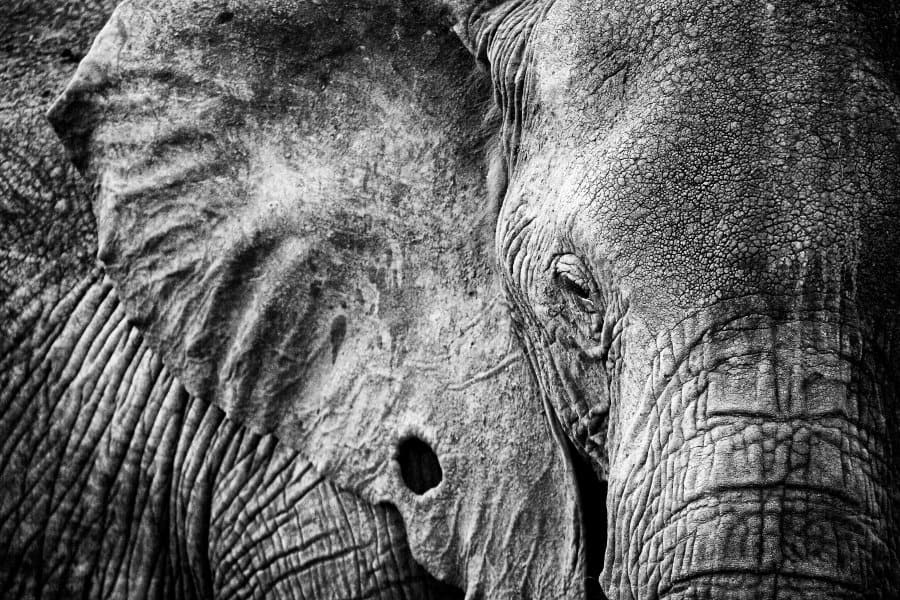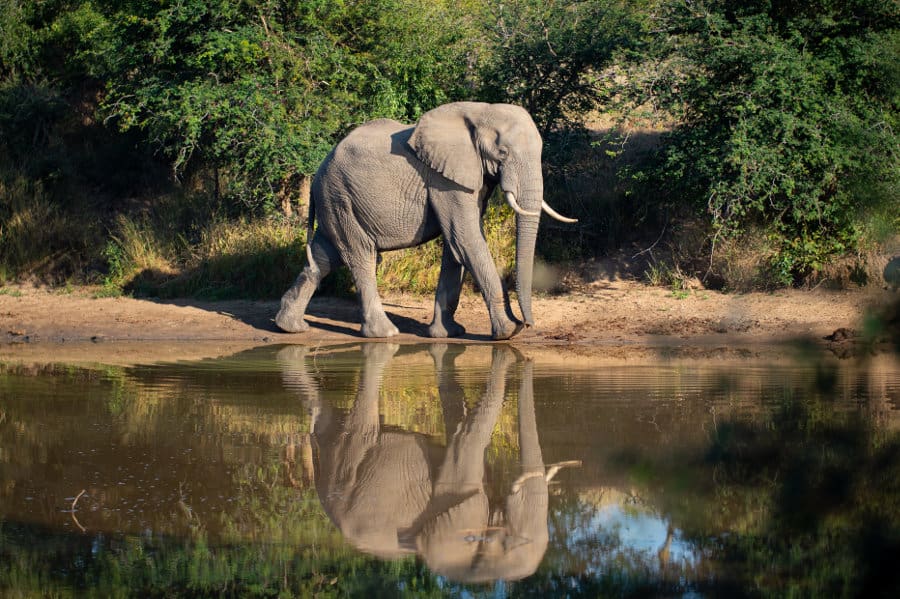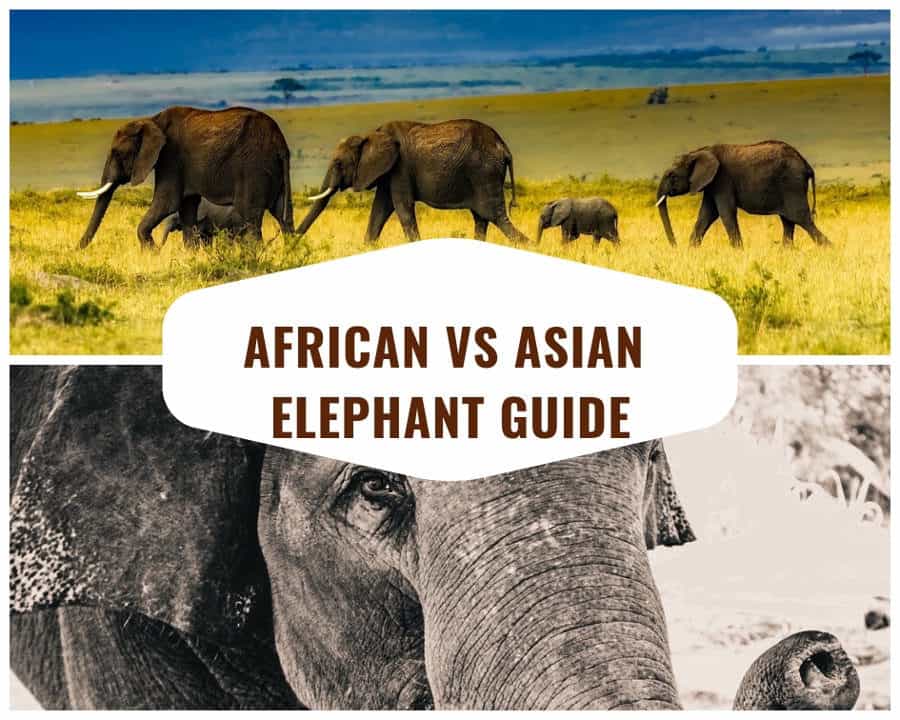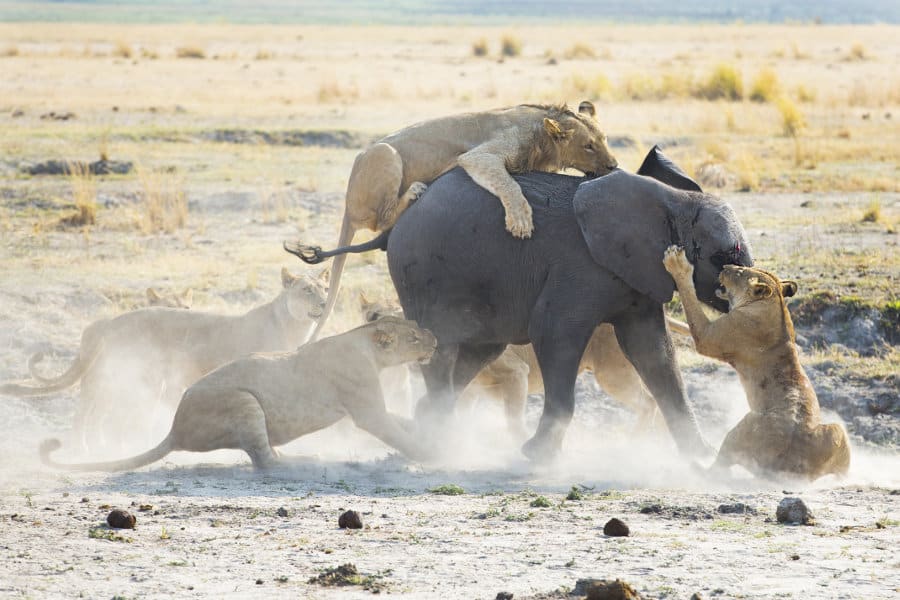If you’re looking for the simple answer, here it is: African elephants live for around 56 years in the wild. And aside from humans, they are the longest-living land mammals on the planet.
But in many ways, asking about the lifespan of elephants is like asking; ‘how long is a piece of string?’. We need more information in order to answer the question.
Elephant life expectancy is largely dependent on a number of key factors. Is it an Asian or African elephant? Is it in captivity or free to roam in the wild? And is it at risk of poaching?
Diving into these questions uncovers some fascinating truths about the lives of these lumbering giants, and how humans have an effect on their world.
It also reveals just how much we as a species still don’t know – even about something as deceptively simple as an elephant’s lifespan.
Let’s take a closer look.
The Lifespan of an Elephant: Differences Between Species
When discussing lifespan, you can’t lump all elephants together; there are three distinct, recognized species of elephants, each with its own unique set of characteristics. And you’ll find them far beyond the scope of the African plains.
African forest elephants, who dwell in the continent’s forests, are a separate species from African bush elephants, who roam its savannahs. And these elephants are unalike in several ways; most notably that forest elephants are smaller and have more oval-shaped ears.
Asian elephants are also a distinct species and are even more different from their African cousins. Here’s a breakdown of the lifespans of these various species, so far as science understands them.
How long do African elephants live for?
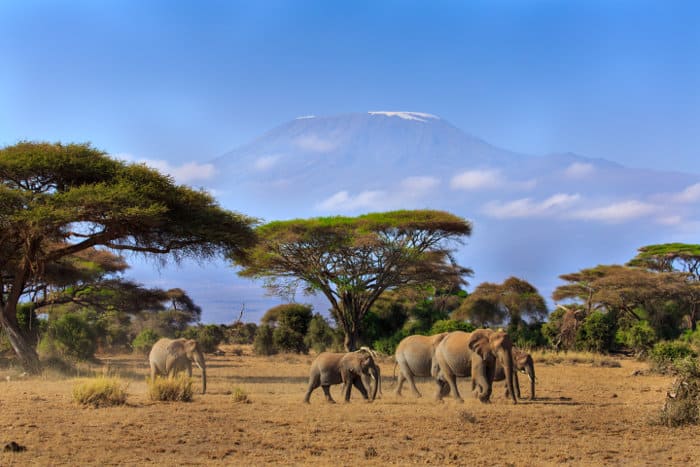
According to a 2008 study in the journal ‘Science’, an African elephant that is free to roam in the wild will live for around 56 years on average. The researchers collected this data from elephants living in Amboseli National Park, which they found to be a suitable sample population.
With that said, the longest-lived African elephants have reached the impressive age of around 70 years old.
These estimations seem to be true for both African bush elephants and African forest elephants. The lifespan of Asian elephants, however, is a little murkier and harder to pin down.
Asian elephants’ lifespan
Asian elephants differ from African elephants in many ways, from their dainty ears and miniature tusks (called tushes) to their protruding foreheads and smaller stature. Yet there’s one key difference that is often overlooked; their lifespan.
Unfortunately, research into the lifespan of Asian elephants is limited, and the consensus is hazy at best.
The same 2008 study from above found that timber elephants in Myanmar live for a median of 41.7 years in the wild.
However, it’s questionable whether these working elephants are representative of their truly wild cousins – which are becoming exceedingly rare. The timber elephants work for humans, living in forest camps and dragging heavy loads.
Some sources claim that Asian elephants live for around 60 – 70 years on average, while others assert a maximum lifespan of around 60 years. So it’s hard to say for sure.
With that said, there is more clear data on captive Asian elephants; so, more on this later.
Elephant Lifespan: How Old Do Elephants Live to Be in Captivity vs in the Wild
It’s a sad reality that many elephants around the world live in captivity, whether in zoos or sanctuaries or as entertainment pieces in circus acts.
And to make matters worse, evidence suggests that these captive elephants tend to live shorter lives than their wild cousins – by a rather staggering amount.
How long do elephants live in the wild?
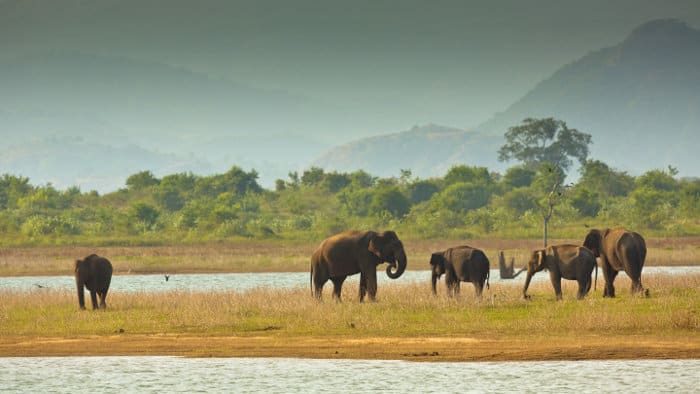
As mentioned before, a wild African elephant will usually live for just shy of 60 years, with some reaching their early 70s.
Wild Asian elephants, on the other hand, appear to live for between 40 and 70 years.
However, these life expectancies are true only for natural causes of death, free from human interference. And just because wild elephants are not captive, does not mean that their life is free from humanity’s activities.
Humanity’s effect on elephant lives and populations
Many wild elephants are sadly subject to a host of human violence and destruction. From poachers who kill for tusks and hides, to large scale habitat destruction, our species is to blame for cutting short thousands of elephant lives each year.
So in reality, many of these beautiful creatures live much shorter lives than nature intended.
Around a century ago, up to 10 million elephants were dwelling throughout the vast expanses of the African wilderness. Today, fewer than half a million of them roam free on the continent.
The IUCN Red List considers African elephants to be ‘vulnerable’, meaning they’re at risk of becoming endangered. Asian elephants have, alas, already found their way into the ‘endangered’ category, with only an estimated 20,000 to 40,000 left in the wild. And populations are dwindling.
Fortunately, African elephant populations are currently on the rise, as poaching is slowly trending downwards. Although, the battle is far from over. Commercial and residential development, logging, farming, and other human-driven happenings are all threats that we need to address.
How long do elephants live in captivity?
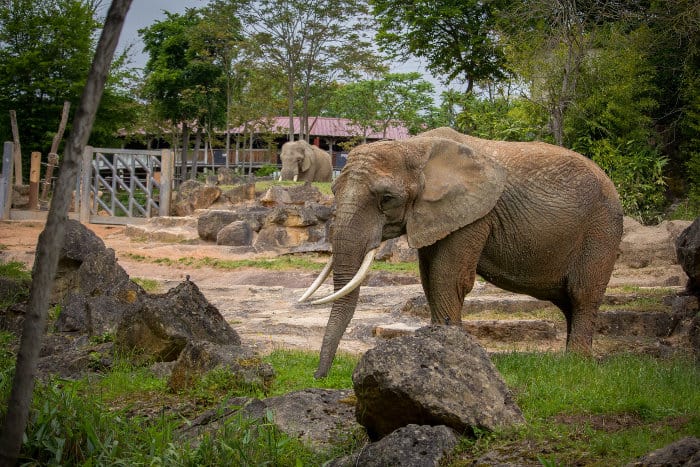
The Guinness World Record for the longest elephant lifespan in captivity belongs to an Asian elephant named Lin Wang. He supposedly lived to the ripe age of 86 years old in Taipei Zoo. Although, since the zoo obtained him as an adult, this claim is near impossible to verify.
In 2019, however, a captive Asian elephant in Kerala, India, died at the alleged age of 88. And this claim stands on more solid footing, even though it hasn’t been verified by Guinness World Records.
One thing that is clear, though, is that these long-lived captive elephants are the outliers. Research has found that captive elephants tend to live much shorter lives than these exceptional, record-breaking animals.
The 2008 study published in Science found some shocking results when examining how elephants respond to captivity. The researchers discovered that elephants living in European zoos lived for less than half as long as their wild cousins on average.
The median lifespan of female African elephants born in captivity is just 17 years. While their Asian counterparts live only for around 19 years in similar conditions.
Why do captive elephants live shorter lives?
A curious finding was that elephants born in captivity usually lived for shorter periods of time than those who humans captured after their first few years of life.
The researchers concluded that there is something critical happening in the elephants’ early lives that determines how long they will live. However, they couldn’t determine what exactly was causing the animals’ early demise.
Activists have speculated that elephants in captivity die earlier due to a combination of mental and physical distress. Many of them are obese, and only few have much space to walk (the elephants, that is, not the activists).
Elephants are also particularly social animals, and social contact in zoos is understandably scarce. Which appears to cause them emotional distress.
Lastly, of all things, the herpes virus seems to be part of the problem. Zoos and other captive environments make it more likely for Asian and African elephants to come into contact with one another, which would never happen in the wild.
When this unusual encounter occurs, the Asian elephants can contract a form of the herpes virus that is foreign and lethal to them.
On a Lighter Note
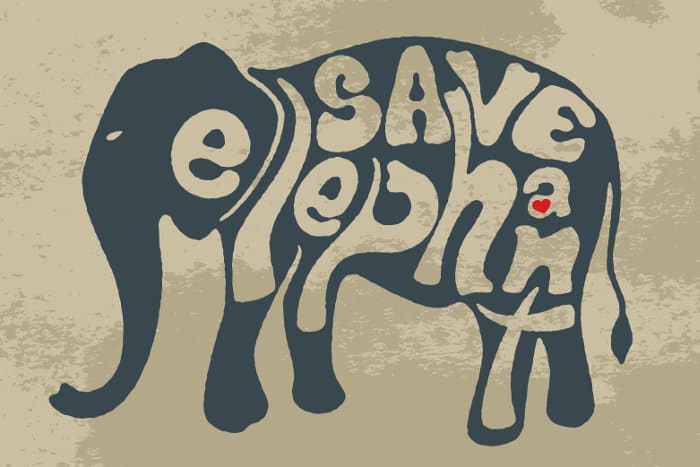
As much as humans have had a negative impact on the lives of elephants, some kind-hearted individuals are fighting back. There are a number of conservation organizations working tirelessly to protect and conserve wild elephant populations.
Elephant Voices is an organization that aims to better understand the complex minds of elephants and support empirically-driven conservation efforts.
Pachyderm Power, Save the Elephants, and the International Elephant Foundation aim to protect wild and captive elephants around the world.
And the David Sheldrick Wildlife Trust is an elephant orphanage where passionate carers rehabilitate young elephants and release them back into the wild.
There are plenty of initiatives like these that are striving to protect these gentle giants. So if you want to support the cause, consider donating or contributing to these organizations.
So, What is the Lifespan of an Elephant?
As is probably clear by now, it’s rather complicated and a little unclear. What seems like a simple question with a straightforward answer has churned up a host of startling facts. Facts that shine a light on these lumbering, long-lived animals and their place in our world. As well as our place in theirs.
We’re lucky enough to live in a time where many elephants still roam wild and free, living out their long lives among Africa’s stunning landscapes. So it’s worth taking the opportunity to seek out a wild encounter with them.
Book yourself a tailor-made safari and head out into the plains and forests of Africa for a truly magical experience.
